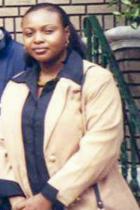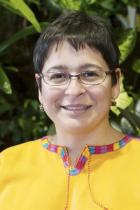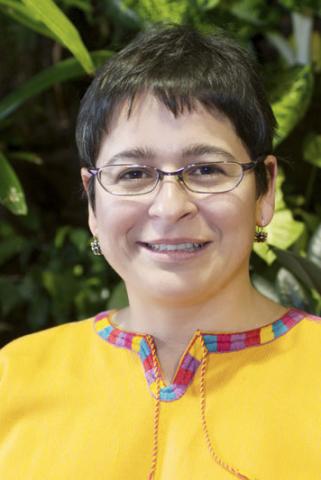Nana Afadzinu

Ghana, 2003
Executive Director, West Africa Civil Society Institute
When asked about the benefits of her participation in the Human Rights Advocates Program, Nana Afadzinu, a 2003 graduate from Ghana, answered, “I became a better human rights advocate. I became more knowledgeable, and that increased my confidence. I was able to contribute more to fighting for human rights with my organization and within the broader women’s and human rights’ movement.”
At the time of her arrival into HRAP, Afadzinu was working as Legal Advocate for Women’s Initiative for Self-Empowerment. One feature of the four months of HRAP is to teach advocates how to network as well as to introduce them to different NGOs and foundations that tailor to human rights and the individual pursuits of the participants. During her four months in HRAP, Afadzinu acquired $10,000 in funding for her organization from the Global Fund for Women to work on issues related to violence against women in Ghana.
After HRAP, Afadzinu went on to pursue further education, receiving her Masters in Law (L.L.M.) from New York University in 2005. She says, “The knowledge and skill acquired during those four months as an HRAP participant was invaluable and contributed to the quest for and my acquisition of a master’s degree.” Furthermore, she cites the lessons learned from the law classes at Columbia, the human rights symposia, the brown bag sessions, the experience-sharing with other HRAP participants, and the HRAP training seminars as having immensely contributed to the development of her career.
Some of Afadzinu’s professional accomplishments include coordinating the Domestic Violence Coalition from 2003 to 2004, which as she states, is “one of the most successful coalitions to date in Ghana” and succeeded in making addressing domestic violence and passing the Domestic Violence Bill top priorities on the policy agenda of the government of Ghana. Afadzinu has also recently served as the head of the Nigeria Office of the Open Society Initiative for West Africa where she contributed to providing the necessary support for civil society in Nigeria to promote and protect fundamental human rights, consolidate democratic governance, and enhance transparency and accountability. Because of her extensive training, professional work, and experience in programs such as HRAP, Afadzinu is regularly sought for and invited by various organizations to present and facilitate sessions on advocacy and human rights.
Currently, Afadzinu works with Ibis-West Africa as its Regional Policy Advisor. In this position, she advises all of Ibis’ education and governance programs, supports developing advocacy strategies of thematic projects, locates and establishes contacts at the national, sub-regional, and international level to build partners in policy advocacy, and coordinates the development of Ibis’ extractive industries program. Afadzinu affirms the impact of HRAP on her career, saying, “I have used (and continue to use) what I learnt in HRAP in the different career (and even personal) spaces that I have found myself in; and have, on all occasions, contributed effectively to ensuring the respect, promotion, and protection of fundamental human rights.” In addition, she remarks, “In that sense, I am not the only one that has benefited but so has society at large. HRAP may only be building the capacity of few advocates at each time but that seeming ‘drop in the bucket’ makes wide ripples. I know because I am an example.”
—Article composed by Andrew Richardson, Program Assistant, June 2010
January 2014 update: Afadzinu is currently the Executive Director of the West Africa Civil Society Institute.








